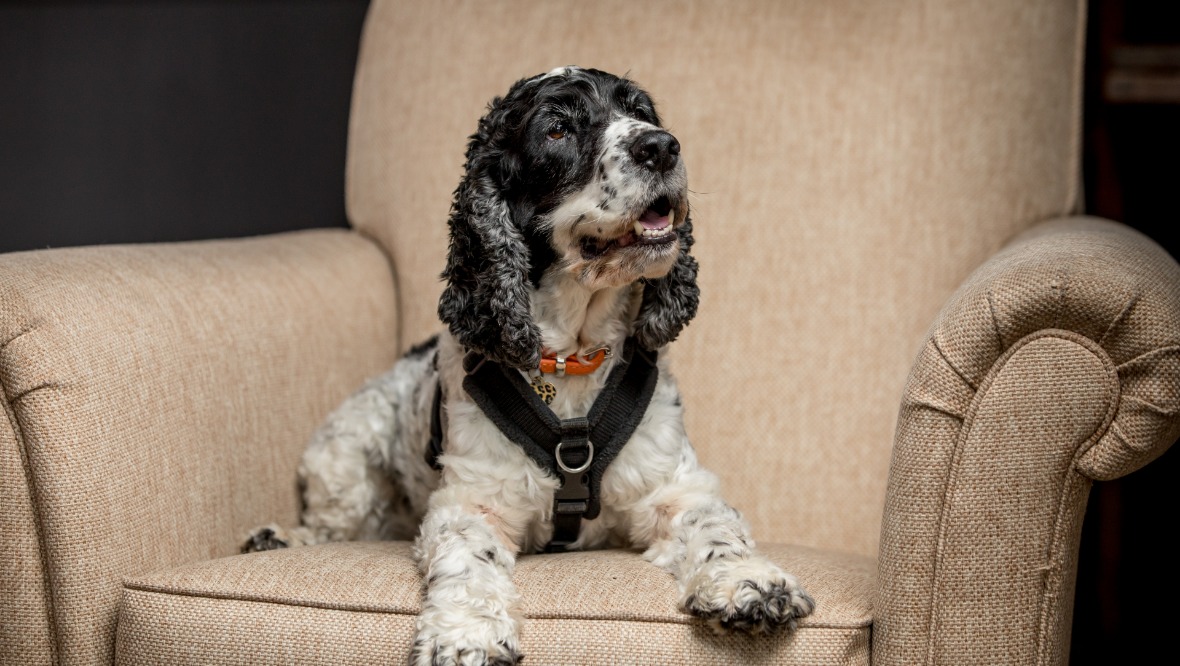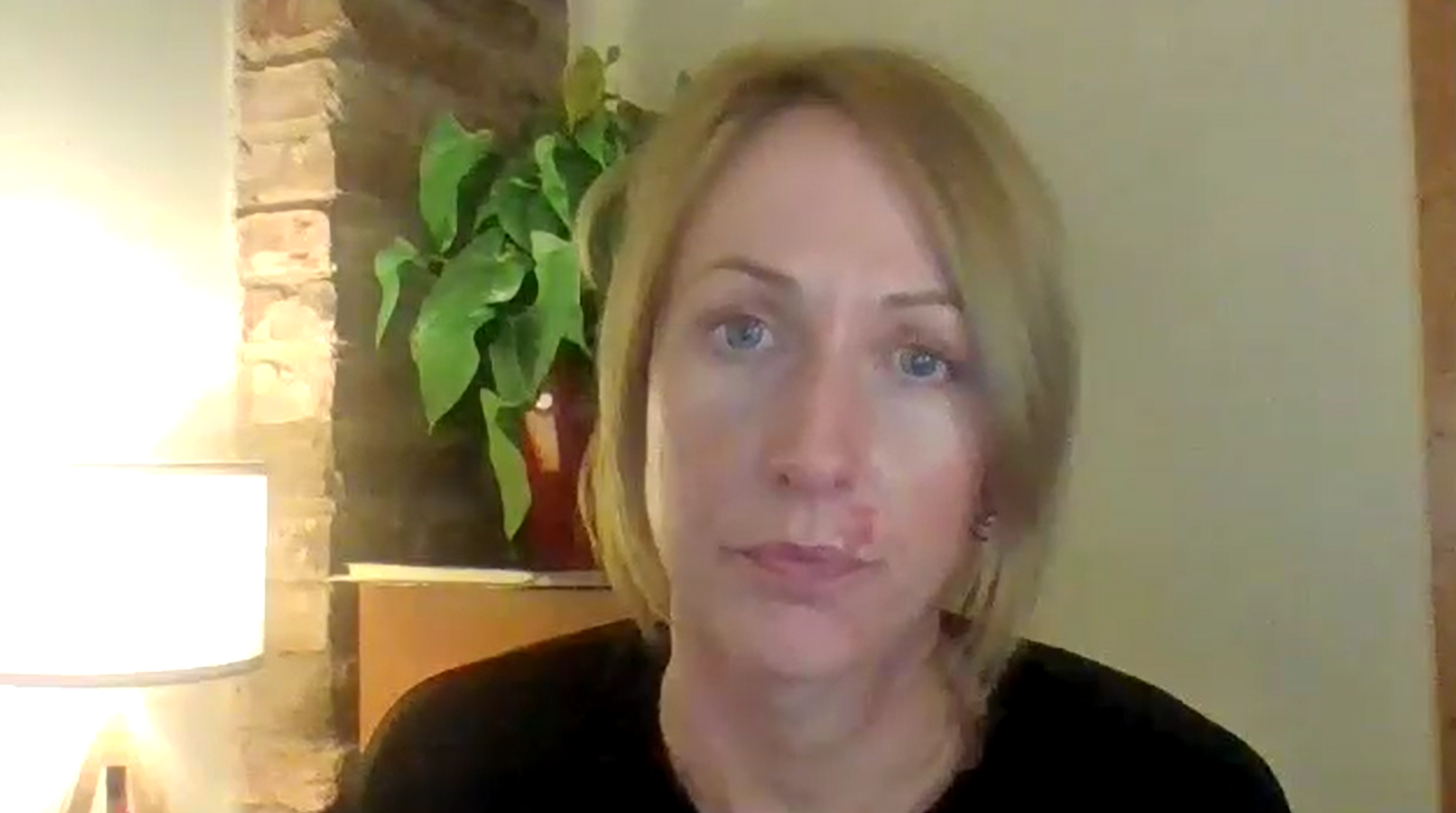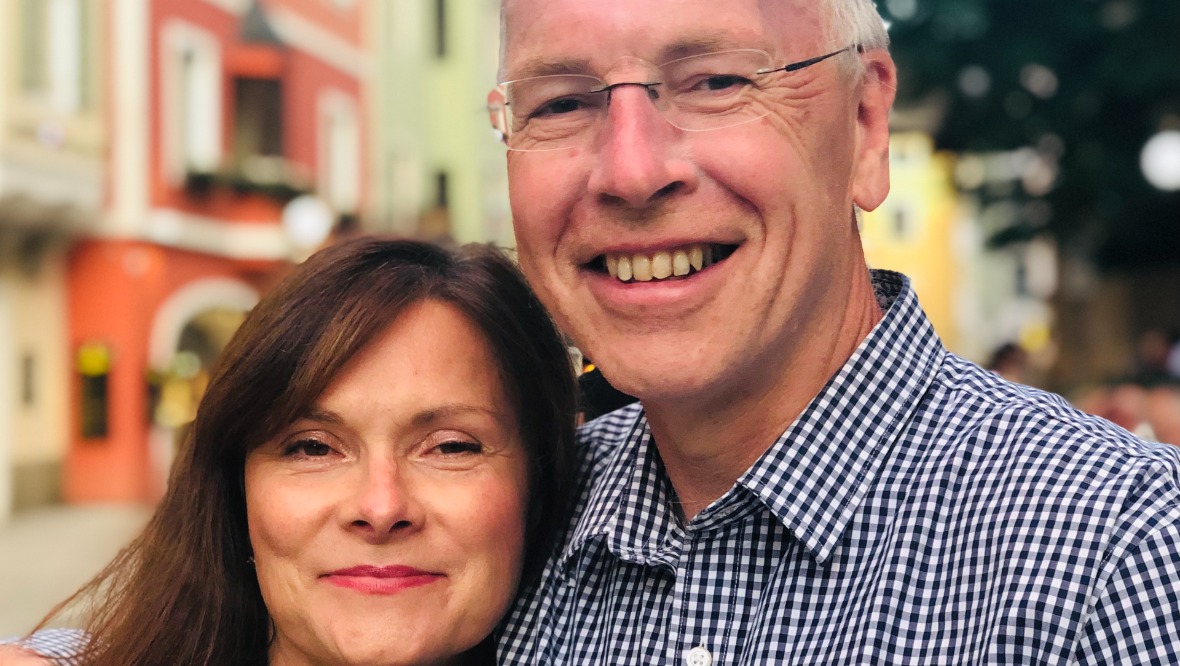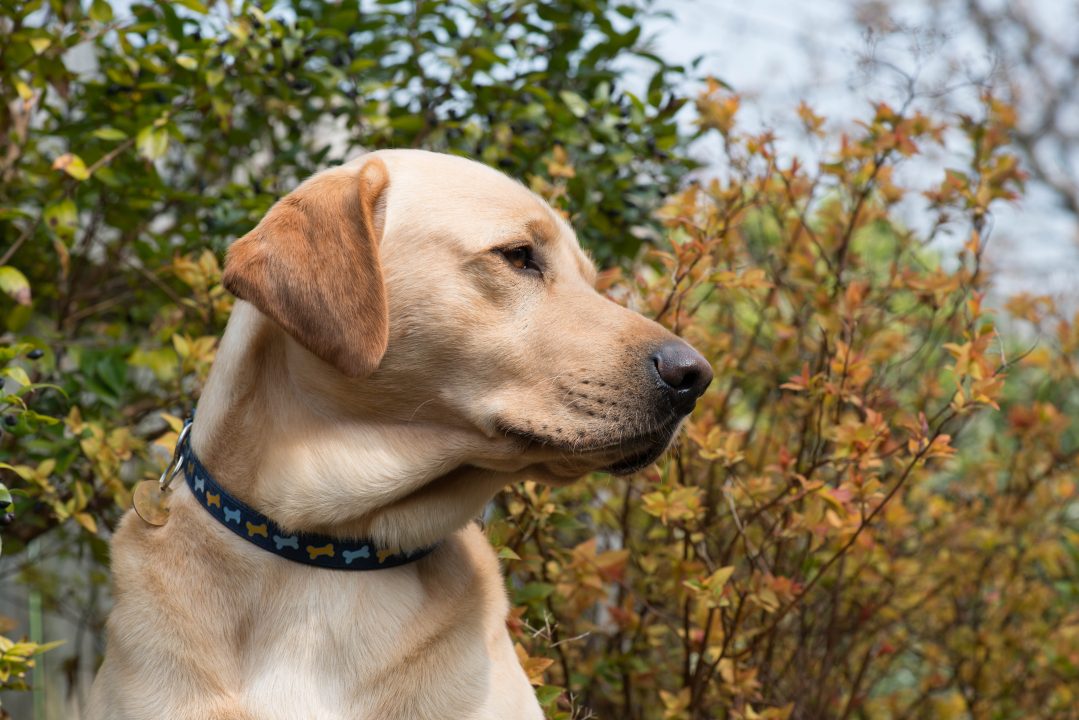A charity has told victims of domestic abuse, who are worried what an abuser might do to their pets if they flee, that they are there to help.
Research from the Dogs Trust shows almost half of professionals working in the domestic abuse sector in Scotland are aware of cases where a pet has been killed.
Additionally, more than 90% said threats to pets are often used as a tool to coerce and control someone.
This can range from perpetrators stopping their partner from accessing veterinary care or spending money on dog food to repeatedly threatening to harm, kill or give the dog away.
The reality is that many victims will not leave their abuser in search of refuge, because they are worried about the harm a perpetrator will do to their pet.
 Dogs Trust
Dogs TrustThe charity’s Freedom Project is a dog fostering service for people fleeing domestic abuse, where volunteers take in and look after the animals until the owner has resettled and is able to take them back.
Diane Muskett, the project’s regional manager, told STV News: “Pets present a huge barrier to people that know they need to get out of that situation but may be worried about what would happen to the pet if they were to leave them behind in the home.
“We know how strong the bond is between a dog and its owner. There’s many situations that the feedback we get from the people we help is they just wouldn’t have left that environment if it meant that the dog didn’t have somewhere safe to go.
“In a lot of the instances we see, people are putting their dog before their own safety because that’s how much they care about what would happen to the dog.
“They want to make sure it’s safe, that it’s going somewhere safe and that they’re going to get the dog back at the end as well.”
 STV News
STV NewsDogs are usually placed in a home at least an hour away from where they came from so that they are not recognised and, to ensure anonymity, a carer is not told who the owner is or where they live.
Jennifer, a Scottish volunteer, began fostering in March this year and two dogs were placed with her family in May, while the country was in lockdown. The area she lives in cannot be disclosed.
It was her family’s first experience of fostering, having previously looked after dogs as a host family for a company who organised holiday sits.
“It’s filled a big gap for us,” she said. “A big void.
“Before lockdown was very busy, a busy life and suddenly everything stopped.
 Dogs Trust
Dogs Trust“It’s been great because they’re so good for us in many ways… We’re out every day, these dogs will walk two hours a day plus if we’ve got the time. The mental and physical benefits of getting out into the fresh air have been super.
“I certainly had quite a busy life working and doing other things, then everything stopped like that. We felt a bit lost really, we went two months without having a dog and I really felt that because I was so used to getting out and about and having that company.
“So, as far as lockdown went, it’s been a real bonus for us as a family to have that focus.
“It’s such a worthwhile thing to do, a great project, and just knowing the dogs are going back to their family was really a good thing as well, for me.”
‘We want to protect the dog but we also want to give a solution to somebody that’s facing this choice of being able to get to safety themselves or find somewhere for their dog to go.’
Diane Muskett, Dogs Trust
While there had initially been a decline in referrals to the Dogs Trust as restrictions tightened in Scotland, there has since been a return to more normal levels.
Ms Muskett added: “With somebody being completely isolated and not being able to go out as they did before or being in the constant company of the perpetrator their living with, I think it was just difficult for people to access support at that time, including our service.
“So initially we saw a reduction but as lockdown eased, we started to get the numbers again and referrals started to increase.”
People can refer to the project directly but the Dogs Trust also works closely with local authorities and domestic abuse charities, such as Scottish Women’s Aid.
“We want to protect the dog,” Ms Muskett said. “But we also want to give a solution to somebody that’s facing this choice of being able to get to safety themselves or find somewhere for their dog to go.
“Ultimately it’s there to prevent that from happening. We want to help people, we want to help their pets as well.”
If you, or someone you know needs help or support through the Freedom Project, visit here.

 Dogs Trust
Dogs Trust
























